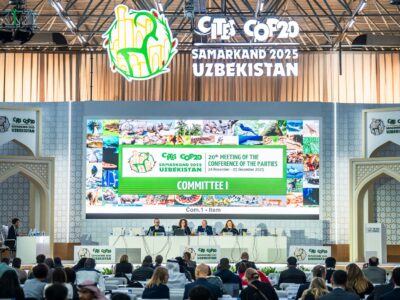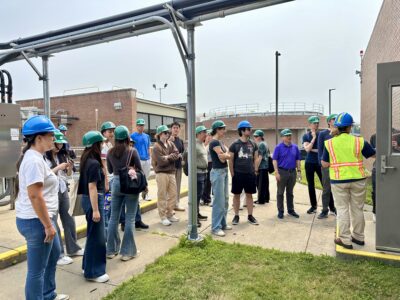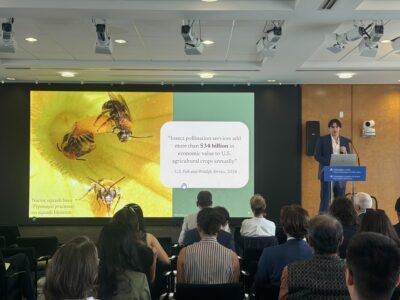
Sid Shah, a current student in Columbia’s Environmental Science and Policy master’s program (MPA-ESP), comes with a strong background in engineering and field biology. Sid completed his undergraduate degree in Chemical and Environmental Engineering from UCLA, and has worked as a research fellow and environmental consultant before coming to Columbia.
Sid is pursuing the MPA-ESP program to get a more formal training in economics and policy, in order to apply that information in natural resources management legislation and other interests.
MPA-ESP intern Emily Jager speaks with Sid to learn more.
Why were you interested in attending the MPA ESP program?
I came to the US at 18, and a lot of my time since then has been dedicated to conservation. When I was completing my degree in chemical engineering at UCLA, I became deeply interested in environmental science and conservation biology. While at UCLA and directly after graduating, I worked on conservation policy, education and research projects, including climate action scorecards, campus sustainability, and the impact of climate change on ecosystems.
I had no formal training in policy or economics—especially natural resource economics. When I thought about the grad school programs I wanted to pursue, the MPA-ESP program at Columbia was one of the programs that stood out to me. The ESP program has flexible elective course options- and what you can focus on both at SIPA and outside of SIPA. I also liked the fact that it is housed both at SIPA and at the Earth Institute, since the Earth Institute is one of Columbia’s largest research wings. So I decided to pursue the ESP program at Columbia to get a formal training in policy and economics.

Why did you choose to focus on policy rather than field work?
I had been doing field work for the past 7 years, and I realized what I was doing was really fun, but it’s also very niche. While I was working for the U.S. Fish and Wildlife Service and also while doing field work at UCLA, I realized that the impact I was able to create was pretty limited, mainly due to the bureaucracy related to policymaking. There is also a serious divorce between policy and science. I realized that if I wanted to scale up the impact I was making, it would have to be on a policy level.
Is there an area of environmental policy or management that you are most interested in?
I’m interested in public/private partnerships and collaborations, as well as being at the heart of legislation – on the lobbying or government side, focused on natural resource economics. I have realized that conservation policy and decision-making is often based on economics. I had no formal understanding of economics coming into the program but after taking classes and doing independent studies on natural resource economics, I’ve realized that this should be my focus area. With my background in science and now in policy, I can use the language of policymakers and decision makers to make long term far-reaching and substantial decisions.
What do you like about the MPA-ESP program? Why?
What I really like about it is that it has given me the flexibility to pursue my own career path. I’ve been able to mold this degree to what I want it to be. Even though I’m getting a degree in environmental science and policy, I really feel like I’m getting a degree in economics and policy because I’m doing a lot of economics related coursework, related research, and independent study.
I think the greatest gift from this program has been my cohort. We’re a very tight group of people. We came from extremely diverse and varied backgrounds; a lot of us are international so we have that very global perspective that SIPA is known for. It’s a very challenging program; you have to get through a lot of coursework and there’s a great work load, so to have the support of the cohort is really great. I also think our cohort is unique in that there is an urgency to the times, so we all feel very motivated by what is going on in the world around us.
What has been your favorite class in the MPA ESP program so far?
Park Williams‘ class on atmospheric and oceanic science is always great. All of my classes have been very useful in their own way, but I think Park’s class was the most fun. He’s very enthusiastic and makes you fall in love with the subject.
Can you share a memorable experience that you’ve had in the program?
I remember the first day of orientation, which was now seven months ago, we were all sitting around these tables, meeting with the faculty and getting a run down of the program, and we didn’t know each other at all- and now, we’ve gotten so close in such a short amount of time. I think the most memorable thing is – you bring a group of people together with very different backgrounds but very similar passions, who really want to put their efforts into making change, who really want to conform to the word of service, and then you all graduate a year later. Every moment with these guys is memorable.
What are you interested in pursuing after graduation? Have your post-graduation goals changed at all during your time at Columbia?
I’m hoping to either stay in New York or go to D.C. because although I’m a non-citizen and I can’t work directly for the federal government, I can either work for a city or state government. I can also work for nonprofits that are contracted by the government, and I know I want to work in either lobby or legislation within the field of natural resource economics.
What advice would you give to prospective students?
It is important to learn to utilize the many resources that are offered at Columbia, because they’re not going to fall into your lap. Whether it’s a research assistantship, a teaching assistantship, an internship, some kind of independent study, -whatever you want to personalize for yourself for this program, you need to be proactive and make use of them. There is always the bare minimum of just attending the classes, but if you leverage the resources correctly and use those resources to your advantage, you can get a lot out of the ESP program, and out of Columbia. It’s pretty great how much is offered to us, but it can slip through the cracks if you aren’t active in pursuing them.



